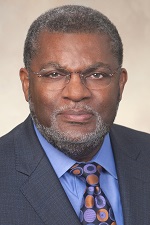 Small businesses in downtown Oxford, Miss. (Source: Shutterstock)
Small businesses in downtown Oxford, Miss. (Source: Shutterstock)
Hope Enterprise Corporation has launched an initiative in five Deep South states with up to $130 million in Goldman Sachs funding that aims to strengthen underserved and under-resourced communities devastated by the pandemic recession.
The Hope Enterprise loan fund is a sister organization of Hope Federal Credit Union of Jackson, Miss. ($367.6 million in assets, 36,229 members as of Dec. 31); both are federally designated as Community Development Financial Institutions.
Recommended For You
Bill Bynum, president/CEO of both organizations, said the Deep South Economic Mobility Collaborative leverages support from Goldman Sachs, local governments and historically Black colleges and universities to help small businesses and bolster employment in a region characterized by deep, entrenched poverty and racial disparities.
 Bill Bynum
Bill Bynum Hope Enterprise will provide loans and the schools will provide technical assistance to small businesses in the areas.
"Together we will knock down the barriers facing underserved businesses and communities in a way that has never been done before," Bynum said. "The collaborative will help build a more inclusive economy that will yield benefits now and for future generations."
Margaret Anadu, a Goldman Sachs managing director and head of its Urban Investment Group, said there is an urgent need to provide more capital to help Black small businesses because of the crucial role they play in their communities.
 Margaret Anadu
Margaret Anadu "By expanding our long-standing partnership with HOPE and working alongside such important institutions as our public sector and HBCU partners, we can collectively create stronger, more inclusive communities while creating a model that can be replicated across the country," she said.
The collaboration's goal is to serve 4,000 to 5,000 businesses and support 30,000 employees and their family members while improving conditions in Deep South communities to further Black economic mobility.
The effort is open to all small businesses in the targeted communities, but the organizers' news release said the pandemic's economic crisis has disproportionately harmed minorities. It cited a study by economist Robert W. Fairlie, published by the National Bureau of Economic Research, that found the number Black-owned businesses fell 41% from February to April 2020, while white-owned businesses fell 17%.
"Furthermore, the value of Black businesses in the Deep South is lower than in any other part of the country, underscoring the urgent need for solutions in a region with the highest percentage of Black residents," the news release said.
The historically Black colleges and universities are in the following participating cities:
- Birmingham, Ala., home of Miles College.
- Montgomery, Ala., home of Alabama State University.
- Little Rock, Ark., home of Philander Smith College.
- Baton Rouge, La., home of Southern University and A&M College.
- New Orleans, home of Xavier University of Louisiana and Dillard University.
- Jackson, Miss., home of Jackson State University and Tougaloo College.
- Memphis, home of LeMoyne-Owen College.
© Touchpoint Markets, All Rights Reserved. Request academic re-use from www.copyright.com. All other uses, submit a request to [email protected]. For more inforrmation visit Asset & Logo Licensing.







